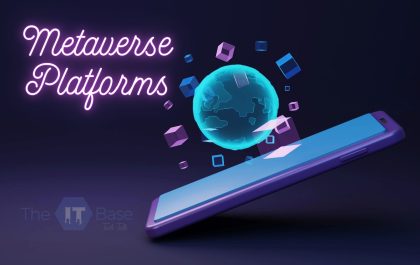The IT sector is fiercely competitive and marked with rapid advancements. The only way for companies to succeed in such an environment is for them to be at the forefront of innovation. Registering a patent is a proven way for a company to establish itself as an innovator. In March 2023, Normalyze and CEO Amer Deeba did exactly that. The United States Patent and Trademark Office granted Normalyze U.S. Patent No. 11,575,696 for Cloud Data Attack Path Detection Based on Cloud Security Posture and Resource Network Path Tracing.
Innovation has been baked into Normalyze’s DNA since it was founded in 2020 by Amer Deeba and Ravi Ithal. The two cybersecurity veterans formed this company intending to make the lives of security teams around the world easier. They have created an agentless machine learning-scanning platform that scans metadata in real-time to discover sensitive data and access paths in a multi-cloud environment. Their platform is already helping organizations secure their data from data breaches and comply with regulations. Normalyze presents insights about organizations’ cloud data visually so that organizations have real-time visibility of their data, allowing them full control of their data — and this patent proves that.
For noncybersecurity professionals, the name of the patent will be puzzling, to say the least. Simply put, however, the grant of this patent means that Normalyze’s clients will now be able to take advantage of the benefits of data security posture management. It will allow them to focus on important matters, rather than being distracted by multiple alerts generated by siloed products.
Table of Contents
What Is DSPM?
The data security posture management approach has been designed based on the idea that data is the most important asset for an organization. This technology ushers in a new era of cloud data security by adopting a data-first methodology. Normalyze developed the technology to help companies organize their data while keeping it secure amid the threats of data losses and leaks.
For security stakeholders, being exposed to such risks is a huge issue. Normalyze has developed its DSPM technology to address this issue head-on. According to the company, its technology provides a new way of understanding how different factors impact the ability of an organization to prevent, or react to, a cyberattack.
“Whatever you’re building in the cloud, it needs to understand that type of environment and be able to innovate in that way, in that fashion,” Amer Deeba told Anna Delaney of the Information Security Media Group.
“Of course, with that comes the other challenge. It makes things more complicated, more complex because you have to do it across a multi-cloud [environment]. But again, if you build the right framework for your security and you bring the right tools that can, out of the box, work in a multi cloud environment, then you’re going to be fine and you’re approaching it the right way.”
The right way, according to Amer Deeba and Normalyze, is DSPM. Security teams will find the DSPM technology to be an extremely useful ally in securing the organization’s cloud data. DSPM will alert security teams about where sensitive data is being stored and who has access to it. They’ll be able to use the platform-based instrumentation of DSPM and the accompanying guidelines to ensure that the organization’s data is being securely stored, wherever it may be stored.
Behind the Patent
Securing the patent for DSPM is undoubtedly a big feat for Normalyze. It will ensure the availability of advanced security systems for organizations that want to adopt it for securing their data stored in multicloud environments. Such organizations can choose from at least ten different DSPM vendors. However, by securing this patent, Normalyze has established itself as the thought leader in the cloud data security space.
Normalyze secured this patent by collaborating with Mummoorthy Murugesan and Yang Zhang, engineering directors at Normalyze. Both worked closely with Normalyze’s technical teams and helped transform the company’s vision into reality.
For readers interested in technical details, the company also shared the abstract from the patent on its website.
How Can DSPM Help Your Organization?
Security teams that implement DSPM will immediately notice a considerable increase in the speed with which they can secure their organization’s cloud data. Working with data presents unique challenges. The approach toward securing cloud data is considerably different from the approach adopted to resolve issues that impact the general cloud, network, devices, and applications. DSPM is going to prove highly effective in securing cloud data because it’s been designed with a data-first approach.
Some of the specific benefits of DSPM include:
— DSPM works with all kinds of data, structured and unstructured, helping teams discover where sensitive data is saved, allowing them to discover forgotten databases, and alerting them to shadow data stores.
— Security teams can also rely on DSPM to help them with regulatory compliance. After sensitive data has been discovered, it’s classified and mapped into regulatory frameworks. This helps security teams identify data that is exposed to cyberattacks. It also identifies data lineage, so that they can trace the source of the leak.
— DSPM alerts security teams to possible attack paths. These alerts are generated based on the sensitivity of data, and other factors such as identity, access, vulnerabilities, and configurations. Risks are prioritized based on the importance of the data.
If you’re interested in trying Normalyze’s DSPM technology, the company invites curious security professionals to demo the live platform.
TheITbase
Related posts
Hot Topics
Metaverse Platforms for Virtual Workspaces
Ever felt like your office is stuck in the Stone Age? Tired of endless Zoom calls that feel about as…
IoT Protocols: The Language of Smart Devices
Ever wonder how your smart fridge talks to your phone? Or how does your fitness tracker know to buzz when…



